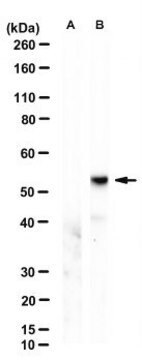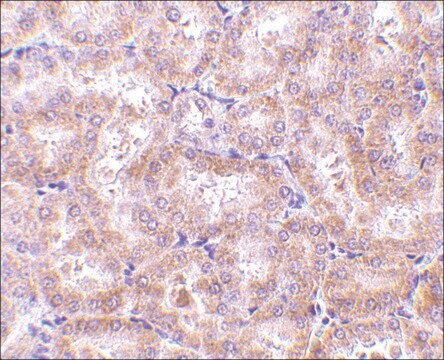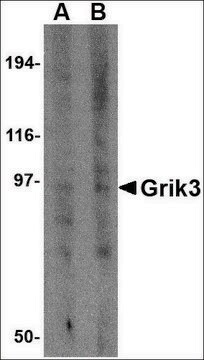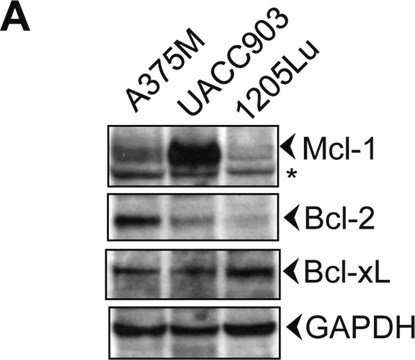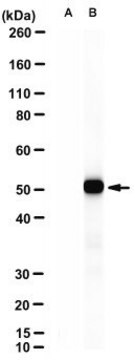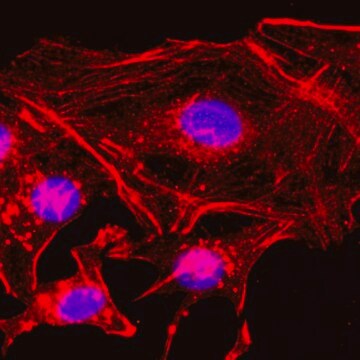MABC1595
Anti-RIPK3/RIP3 Antibody, clone 8G7
Synonym(e):
Anti-RIPK3 Antibody, Clone 8G7 Anti-RIPK3, RIPK3 Detection Antibody
About This Item
Empfohlene Produkte
Biologische Quelle
rat
Qualitätsniveau
Konjugat
unconjugated
Antikörperform
purified antibody
Antikörper-Produkttyp
primary antibodies
Klon
8G7, monoclonal
Mol-Gew.
calculated mol wt 53.32 kDa
observed mol wt ~53 kDa
Speziesreaktivität
mouse
Verpackung
antibody small pack of 100 μL
Methode(n)
immunofluorescence: suitable
western blot: suitable
Isotyp
IgG2aκ
UniProt-Hinterlegungsnummer
Versandbedingung
dry ice
Lagertemp.
2-8°C
Posttranslationale Modifikation Target
unmodified
Allgemeine Beschreibung
Spezifität
Immunogen
Anwendung
Evaluated by Western Blotting in Mouse dermal fibroblast lysates.
Western Blotting Analysis: A 1:500 dilution of this antibody detected RIPK3/RIP3 in Mouse dermal fibroblast lysates.
Tested Applications
Western Blotting Analysis: A representative lot detected RIPK3/RIP3 in Western Blotting applications (Petrie, E.J., et. al. (2019). Cell Rep. 28(13):3309-3319).
Immunofluorescence Analysis: A representative lot detected RIPK3/RIP3 in Immunofluorescence applications (Samson, A.L., et. al. (2021). Cell Death Differ. doi: 10.1038/s41418-021-00742-x)
Note: Actual optimal working dilutions must be determined by end user as specimens, and experimental conditions may vary with the end user
Physikalische Form
Lagerung und Haltbarkeit
Sonstige Hinweise
Haftungsausschluss
Sie haben nicht das passende Produkt gefunden?
Probieren Sie unser Produkt-Auswahlhilfe. aus.
Lagerklassenschlüssel
12 - Non Combustible Liquids
WGK
WGK 1
Flammpunkt (°F)
Not applicable
Flammpunkt (°C)
Not applicable
Analysenzertifikate (COA)
Suchen Sie nach Analysenzertifikate (COA), indem Sie die Lot-/Chargennummer des Produkts eingeben. Lot- und Chargennummern sind auf dem Produktetikett hinter den Wörtern ‘Lot’ oder ‘Batch’ (Lot oder Charge) zu finden.
Besitzen Sie dieses Produkt bereits?
In der Dokumentenbibliothek finden Sie die Dokumentation zu den Produkten, die Sie kürzlich erworben haben.
Unser Team von Wissenschaftlern verfügt über Erfahrung in allen Forschungsbereichen einschließlich Life Science, Materialwissenschaften, chemischer Synthese, Chromatographie, Analytik und vielen mehr..
Setzen Sie sich mit dem technischen Dienst in Verbindung.
